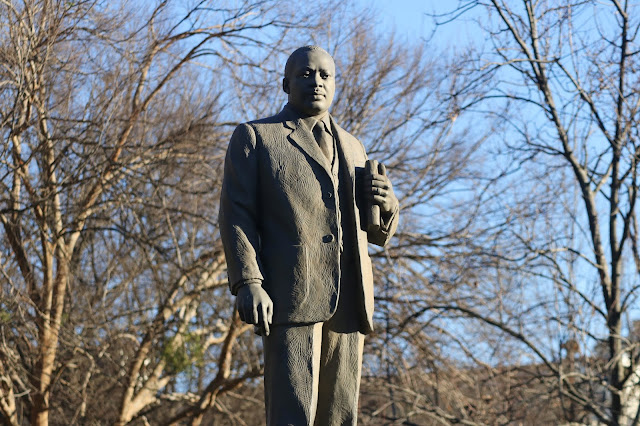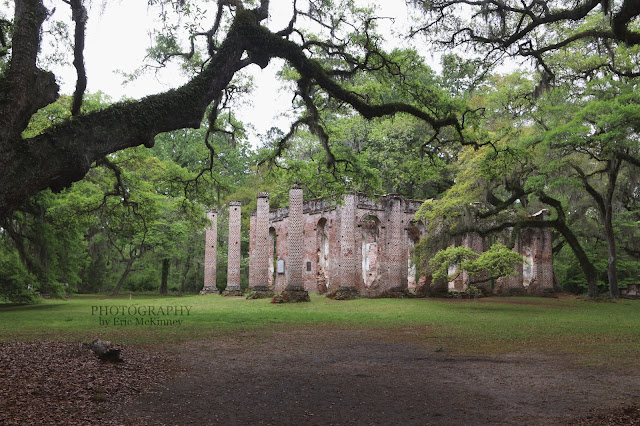Kelly Ingram Park / Birmingham, AL

Since February is officially celebrated as Black History Month, I wanted to share my experience from a recent trip to Birmingham, Alabama. Birmingham is a city with strong ties to the Civil Rights Movement, and as I planned out what sights I wanted to visit, there was one area in particular that stood out --- Kelly Ingram Park.
"Injustice anywhere is a threat to justice everywhere." - Martin Luther King, Jr.
Kelly Ingram Park (historically known as West Park) is located within the six-block area of downtown Birmingham that is known as the Birmingham Civil Rights National Monument. Several historic moments during the Civil Rights Movement of the mid-1950's to the late 1960's took place within the area. Kelly Ingram Park, part of the U.S. Civil Rights Trail, is a public park filled with emotionally powerful sculptures that depict moments throughout the struggle by African Americans for civil rights in Birmingham.
"One day we will learn that the heart can never be totally right if the head is totally wrong." - Martin Luther King, Jr.
A trail of monuments, sculptures and interpretive signs lead the way around the park. The sculptures, installed by James Drake, are positioned along a circular walking path called the Freedom Walk. Unlike the artwork featured at most national parks and monuments I've visited, Drake's installations were designed with a purpose.
To invoke an emotional response from the viewer.
To tap into the humanity within each of us.
His installations served their purpose on my visit.
They were difficult to look; they hit right in the gut, struck the heart, aroused a variety of emotions.
One of the sculptures showed two children framed in metal with the words "I ain't afraid of your jail" displayed beneath them. A second metal wall on the other side of the path features prison bars so that when you stood in the grass, looking through it, the children appeared to be in jail.
Another sculpture featured two metal walls, one on each side of the path, with ferocious metal dogs leaping out toward the path so that the viewer must walk between the dogs.
The Foot Soldier monument, designed by Ronald McDowell, was a recreation of the infamous photograph of a police officer grabbing a young African American man by the shirt as the police dog lunges toward the man with teeth bared.
Three Ministers Kneeling monument, at the southeast corner of the park, depicted three pastors kneeling in prayer during a civil rights march in downtown Birmingham.
A statue of Martin Luther King, Jr. stands prominently in the center of the park. King was a religious leader and a civil rights activist, and his leadership was fundamental to the Civil Rights Movement. King's statue faces the 16th Street Baptist Church.
"There is nothing more majestic and sublime than the quiet testimony of a people willing to sacrifice and suffer for the cause of freedom." - Martin Luther King, Jr.
At the northwest corner of the park stood the 16th Street Baptist Church, which was the location of the infamous bombing in 1963 which claimed the lives of four young African American girls on their way to the church for Sunday School. Just across the street from the church stood The Four Spirits statue honoring the four girls.
"One day we will learn that the heart can never be totally right if the head is totally wrong." - Martin Luther King, Jr.
If you have plans to visit Birmingham or even just the opportunity pass through it on a roadtrip, I strongly recommend spending some time at Kelly Ingram Park. It certainly shows a darker side of our nation's history, but there's still much that can be learned from it.


























Comments
Post a Comment